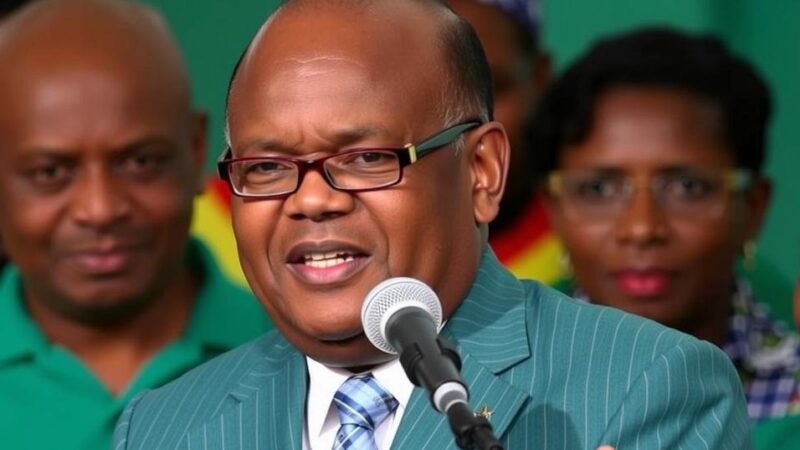Argentina’s President Javier Milei has dismissed Foreign Minister Diana Mondino after the country supported a UN resolution to lift the US embargo on Cuba, marking a shift from its historical alignment with the US and Israel. Gerardo Werthein succeeds Mondino as foreign minister. This vote may have implications for Argentina’s diplomatic relationships, particularly regarding the Falkland Islands dispute.
President Javier Milei of Argentina has dismissed Foreign Minister Diana Mondino following the nation’s support for a United Nations resolution advocating for the cessation of the United States embargo on Cuba. This decision represents a significant deviation from the foreign policy alignment that Argentina has historically maintained with both the United States and Israel. On the matter, Argentina joined 186 other UN member states in favor of this resolution, while only the United States and Israel voted against it, and Moldova abstained from the vote. In the wake of this decision, Mr. Gerardo Werthein has been appointed as the new Foreign Minister. Previously, Mr. Werthein served as Argentina’s ambassador to the United States. The dismissal of Mondino has sparked discussions surrounding the diplomatic implications of opposing the US and Israel, especially considering the potential need for support from Cuba and its allies in future resolutions concerning Argentina’s claims over the Falkland Islands. Following the announcement of Mondino’s removal, President Milei shared a post from a lawmaker expressing pride in a government that does not condone any form of dictatorship, reinforcing the administration’s position on international relations. Historically, Argentina has shown resistance to the US embargo against Cuba, further complicating existing diplomatic dynamics under Milei’s presidency.
The recent dismissal of Foreign Minister Diana Mondino by President Javier Milei follows Argentina’s recent vote at the United Nations in favor of lifting the longstanding US embargo on Cuba, an action reflecting a significant shift in the nation’s diplomatic posture. For decades, Argentina has largely opposed the embargo, aligning more closely with nations advocating for Cuba’s economic and political freedom. This incident underscores the complexities of international relations faced by Argentina, particularly in balancing its historical ties with the United States and Israel against its need for support from nations such as Cuba in matters concerning territorial sovereignty, such as the Falkland Islands dispute.
In conclusion, President Javier Milei’s decision to terminate Foreign Minister Diana Mondino following the country’s UN vote to support the lifting of the US embargo on Cuba highlights the tensions inherent in contemporary Argentine foreign policy. By aligning with 186 other nations, Argentina has moved away from its allies, illuminating the intricate balance the country must maintain in international diplomatic relations. As new Foreign Minister Gerardo Werthein steps into his role, it remains to be seen how he will navigate these challenges while upholding Argentina’s national interests in the global arena.
Original Source: www.france24.com







